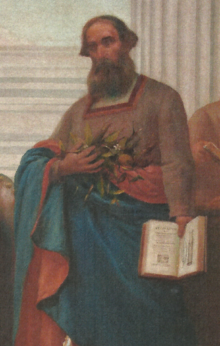Garcia de Orta | |
|---|---|
 | |
| Born | 1501 or 1502 |
| Died | 1568 |
| Occupation(s) | Physician and naturalist |
| Signature | |
 | |
Garcia de Orta (or Garcia d'Orta; 1501–1568) was a Portuguese physician, herbalist, and naturalist, who worked primarily in Goa and Bombay in Portuguese India.
A pioneer of tropical medicine, pharmacognosy, and ethnobotany, Garcia used an experimental approach to the identification and the use of herbal medicines, rather than the older approach of received knowledge.
His most famous work is Colóquios dos simples e drogas da India, a book on simples (herbs used individually and not mixed with others) and drugs. Published in 1563, it is the earliest treatise on the medicinal and economic plants of India. Carolus Clusius translated it into Latin, which was widely used as a standard reference text on medicinal plants.
Although Garcia de Orta did not suffer the Goa Inquisition, his sister Catarina was burnt at the stake in 1569 for being a secret Jew and, based on her confession, his remains were later exhumed and burnt, along with an effigy, at an auto-da-fé.
Memorials recognizing his contributions have been built in both Portugal and India.